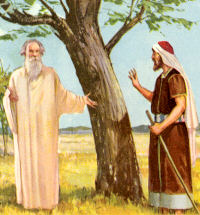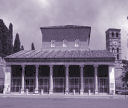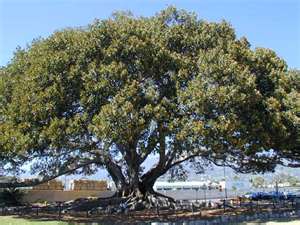I shall cultivate the ground around it and fertilize it. (Luke 13:8)
The parable of the fig tree tells us that God is constantly at work pruning and watering and fertilizing us so that we can produce fruit. So often during Lent, we focus on our need to repent. While this is a good thing to think about, we also need to remember that our God is a God of consolation and love. He is always encouraging us. He never gives up on us. He never condemns or rejects us.
Jesus knows who we are. He knows everything about us. So it’s comforting to know that even with all of our weakness and failures, he will still work in us to make us more fruitful. In fact, his compassion is one of the most effective fertilizers around. It’s capable of feeding us and strengthening us. It has the power to lift us out of the pain and setbacks we can experience in our lives and encourage us to take the next step forward to a fruitful, peaceful life.
On one occasion, Jesus saw a large crowd, and his heart was moved with compassion for them because they were “troubled and abandoned, like sheep without a shepherd” (Matthew 9:36). If you ever find yourself feeling this way, stand up and tell yourself that Jesus is with you. Believe that he knows your troubles and is showering you with his compassion and his love. You are not alone!
The Jesus who had compassion for this crowd is the same Jesus who walked out of the tomb on Easter Sunday. It’s the same Jesus we receive every time we take Communion. It’s the same Jesus who lives in your heart. It’s the same Jesus who lives in the hearts of your family members, your neighbors, your co-workers, even your enemies.
As you ponder these truths today, don’t just let his compassion encourage and console you. Let it melt your heart as well. Let it move you to share this compassion with everyone you meet.
“Jesus, I want to be more like you. Teach me how to cultivate your presence in the people around me.”
Exodus 3:1-8, 13-15; Psalm 103:1-4, 6-8, 11; 1 Corinthians 10:1-6, 10-12
Questions for Reflection or Group Discussion
1. In the first reading, God comes down to Moses and recommits himself to his people for the purpose of “rescuing them.” In what ways has God, through Jesus Christ, “come down” and rescued you from the power of sin and the devil? What areas of your life still need God’s intervention?
2. The Responsorial Psalm tells us that God is “kind and merciful.” As Christians we are called to be imitators of Christ who “pardons all your iniquities, heals all your ills. He redeems your life from destruction, crowns you with kindness and compassion” (Psalm 103:3-4). Since Christ has done this for you, what are some ways you can show “kindness and compassion” to others, and pardon their iniquities, especially those who have wronged you?
3. In the second reading, St. Paul reminds the Corinthians not to “grumble”, which for us can often be a cause of disunity and harm to others. What practical steps during Lent can you take, individually and corporately, to encourage and build up the faith of your families or your fellow parishioners?
4. In the Gospel reading, Jesus warns the people of the danger of assuming that the sufferings or misfortunes of others are caused by their sin. He also reminds them of their need to repent. Are you judgmental of the weaknesses of others, rather than looking at your weaknesses? Knowing that we are all sinners in need of God’s mercy, how can you reach out more to others who are suffering no matter what the cause?
5. Also in the Gospel reading, Jesus tells a parable on the importance he attaches to our lives’ bearing fruit. How would you describe the fruits you are bearing for Jesus? What additional fruits may Jesus be asking you to bear this Lent?
6. After describing the depth of Jesus’ compassion, the meditation ends with these words: “As you ponder these truths today, don’t just let his compassion encourage and console you. Let it melt your heart as well. Let it move you to share this compassion with everyone you meet.” What steps can you take to apply these words in a greater way to your life?
7. Take some time now to pray and ask Jesus for the grace to be transformed more and more into his likeness, so you can give to others the compassion and love the Lord has given you. Use the prayer at the end of the meditation as a starting point.




